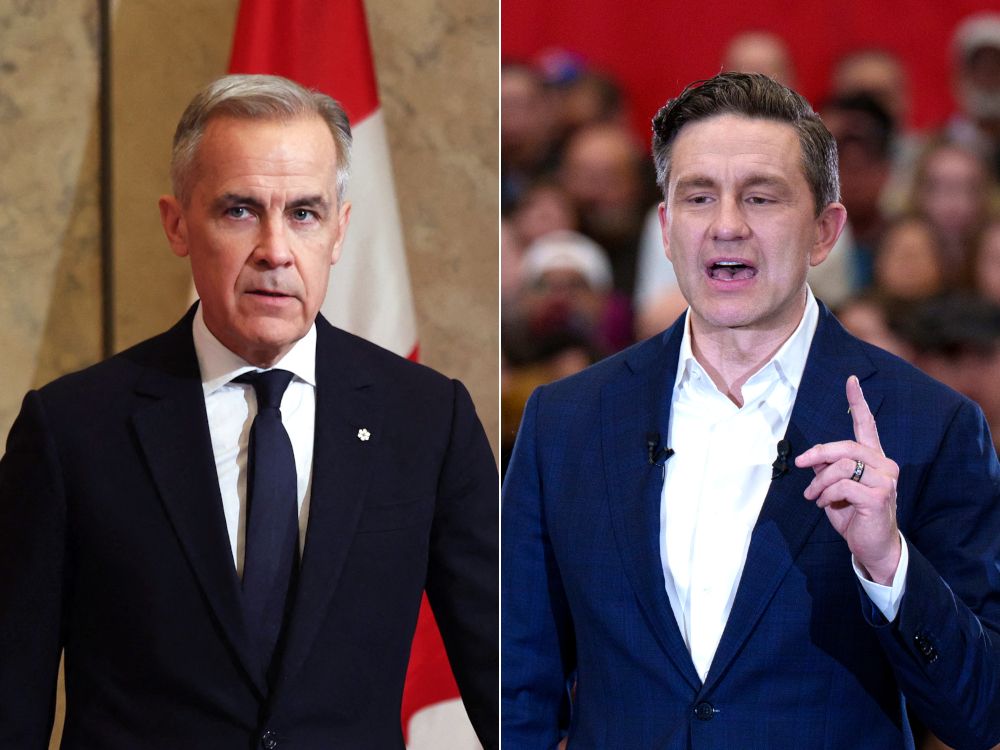
A new poll from Abacus Data found that there appears to be a stark difference in the “emotional drivers” influencing Canadians’ voting intention in the upcoming federal election. The firm also said those factors are spilling over into who voters see as best suited to become the next prime minister.
“The Conservatives resonate with those in a scarcity mindset — voters seeking immediate relief and system disruption — while the Liberals connect with those in a precarity mindset, who are more focused on navigating uncertainty and restoring long-term stability,”
Abacus’s Eddie Sheppard and CEO David Coletto wrote.
In a national survey of 2,000 adults between March 20 and 25, respondents were asked about the issue weighing heaviest on their April 28 election day decision.
While the impact of U.S. President Donald Trump’s trade war with Canada has evolved as a major influence in respondents’ ballot choice (19 per cent), cost-of-living and affordability remain the primary concern (31 per cent).

On the latter, more people (40 per cent) feel Pierre Poilevre and the Conservatives are better positioned than Mark Carney and the Liberals (33 per cent). But when it comes to dealing with team Trump, it’s the Grits and their newly minted and politically untested leader who garners the most confidence, 51 per cent to Poilievre’s 28.
The NDP’s percentages and those of other parties didn’t figure prominently in interpreting the data set.
Abacus says the two mindsets are further entrenched along similar lines on the other top issues.
Respondents favour the Tories to be better positioned to address jobs and the economy, crime and safety, or taxes and government spending — an issue on which they outpaced the Liberals 63 per cent to 18 per cent in terms of election day sway.
Meanwhile, the Liberals seem to be the choice for those who feel health care, housing, climate change, or Canada-U.S. relations are paramount.
Disruptive versus stabilizing leadership
On leadership, the pollster found Canadians split on primary prime ministerial responsibilities once elected and somewhat equally divided on what type of leader Canada needs at this moment.
Just over a third of respondents (34 per cent) cited a more independent, Canada-first approach to economic and trade policy as the next prime minister’s top priority, with slightly more committed Liberal voters giving it priority than CPC supporters, 40 per cent to 36.
Challenging elites and making life more affordable for everyday Canadians, a staple promise in Poilievre’s campaign speeches, drew support from 29 per cent who want it prioritized by the head of government. Unsurprisingly, more of those ready to vote CPC (35 per cent) think it should be the party’s first order of business than do Liberal voters (32 per cent).
Priorities of lesser importance — rebuilding trust in government and ensuring long-term domestic stability, and strengthening Canada’s global influence and managing geopolitical uncertainty — also found respondents separated on job one. Committed Conservative voters gave Poilievre precedence (44 per cent to the Liberals’ 32), while those intending to vote Liberal think Carney (51 per cent to the CPC’s 35) should make it his primary mandate.
“This signals that in the upcoming election, how a leader leads — disruptive versus stabilizing — may matter just as much as what they promise to do,” Abacus noted.
Asked about the approach Canada’s next prime minister should take, 42 per cent of respondents desire a stable and steady strategy with gradual change, 18 per cent want an assertive and bold agenda to change the system, and 34 per cent want a combination of both styles.
For each party, among the committed voters seeking stability, Carney claimed 47 per cent of the support to Poilievre’s 31. Conversely, of those desiring disruption, 48 per cent think the veteran member of parliament is the man for the job, compared to only 27 per cent of Liberal supporters.
Interestingly, about the same percentage of both dedicated Conservative and Liberal voters — 38 and 37 per cent respectively — want a bit of both styles.
Abacus wrote that its results reflect obvious political preferences and opposing worldviews. The challenge for a would-be prime minister, it said, is bridging the gap.
“For Poilievre, the challenge is to show that bold reform can come without further destabilizing the country — especially to voters feeling uncertain,” Abacus wrote.
“For Carney, the opportunity lies in deepening trust among precarious voters while demonstrating that long-term planning doesn’t mean ignoring immediate struggles like affordability.”
Our website is the place for the latest breaking news, exclusive scoops, longreads and provocative commentary. Please bookmark nationalpost.com and sign up for our daily newsletter, Posted, here.
